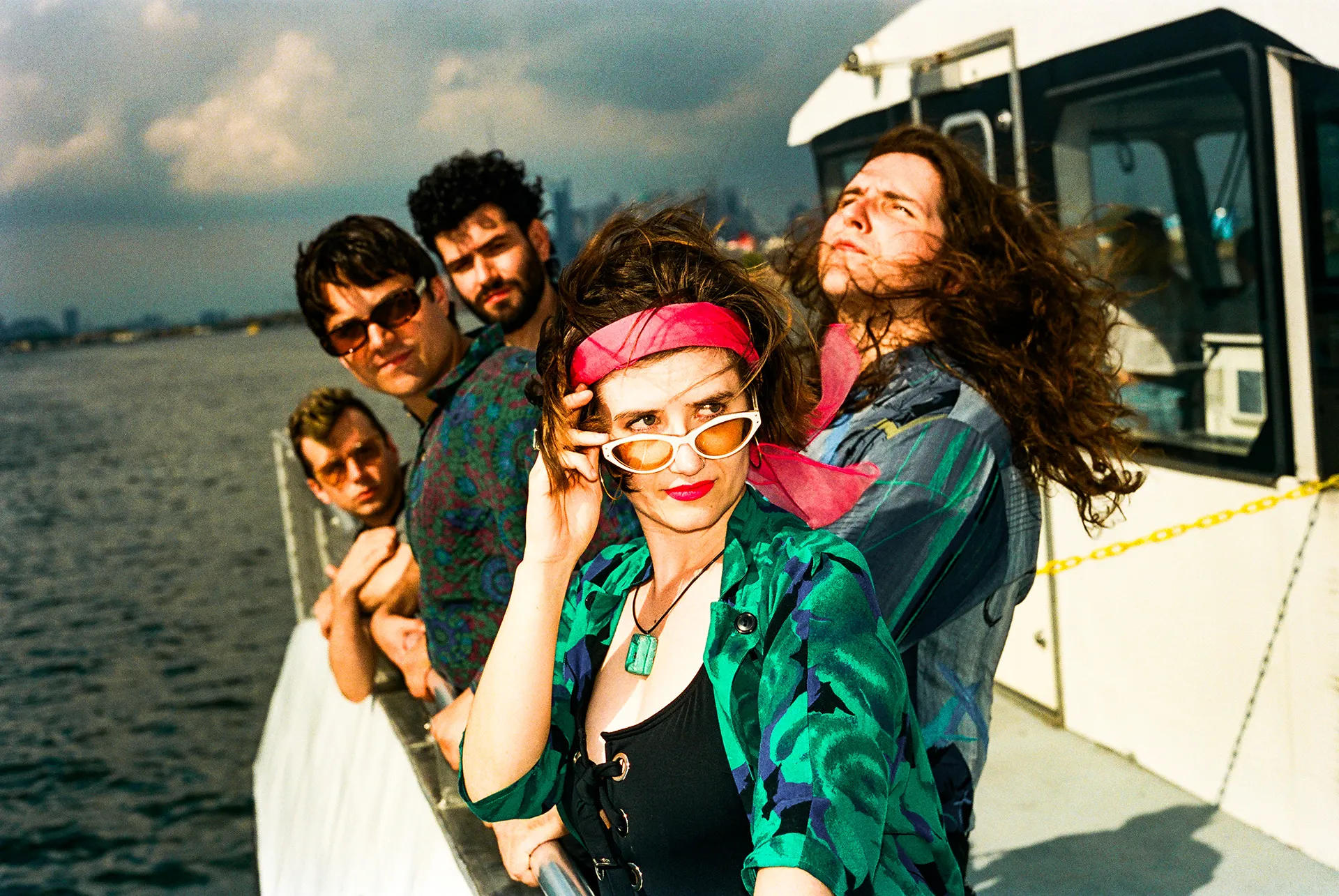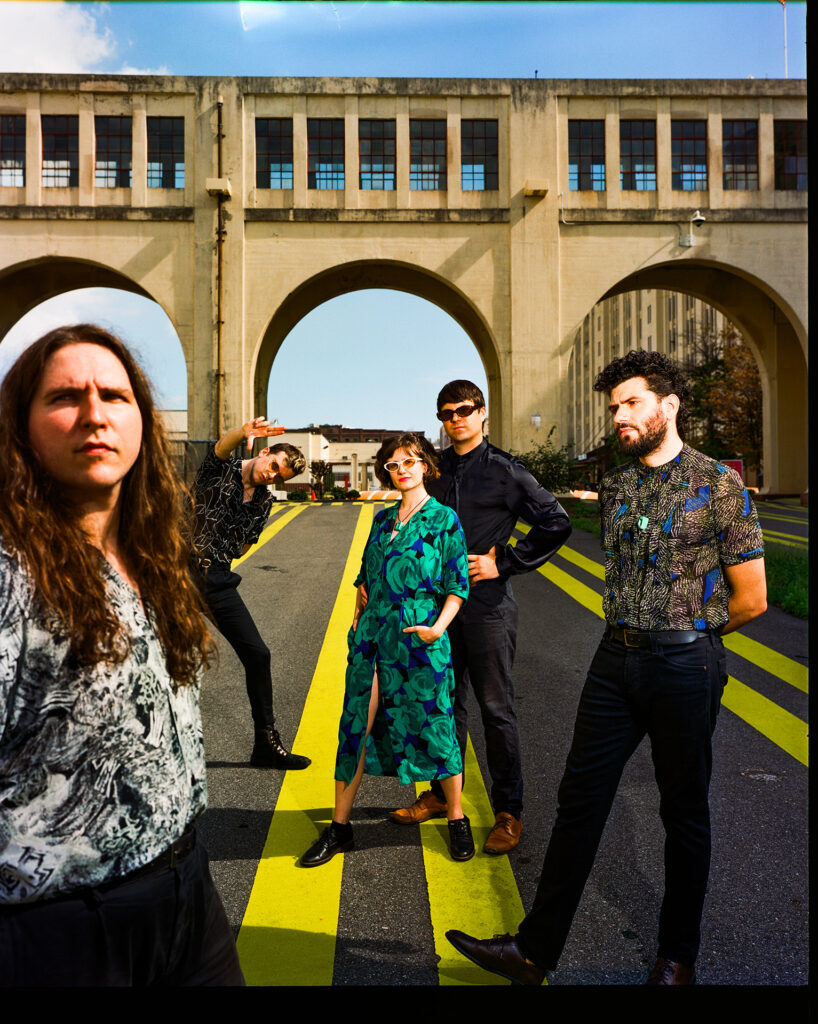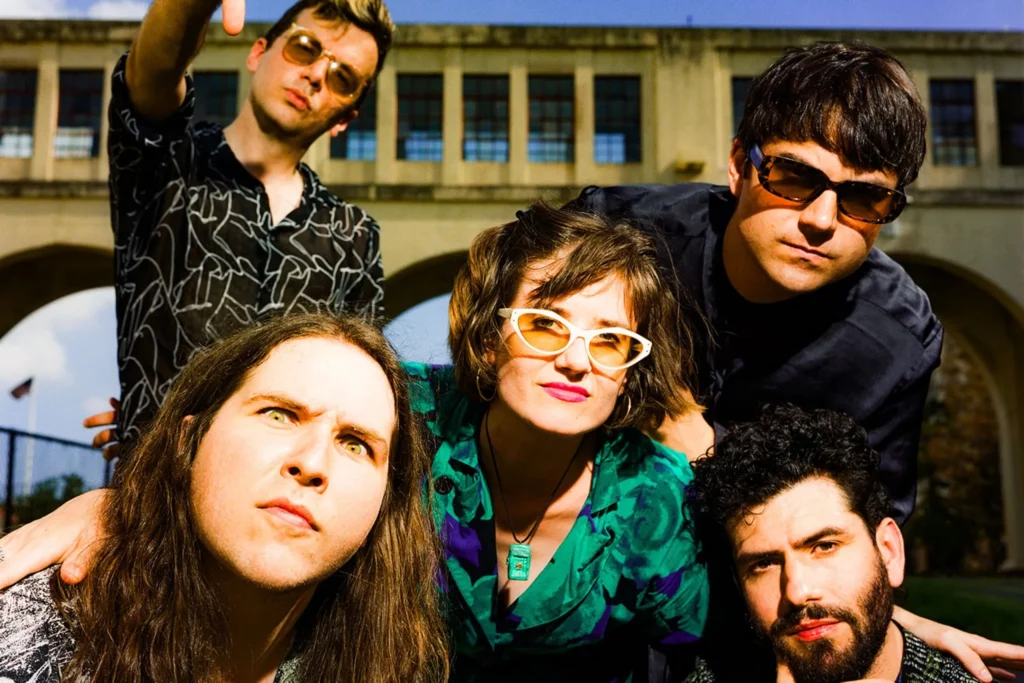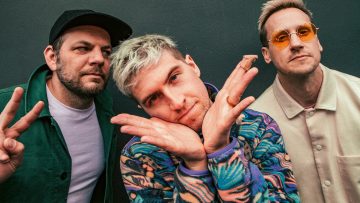
In an exclusive conversation with whynow, Bodega’s dynamic duo, Ben Hozie and Nikki Belfiglio, offer a deep dive into the creative cauldron that is their music. From their humble beginnings in New York to their complex and illuminating new album, Our Brand Could Be Yr Life, Ben and Nikki unthread the elaborate tapestry of influences and ideas that define Bodega, from mid-century philosophy to late-century music.
With a blend of wit, wisdom, and a touch of caffeine-induced enthusiasm, Ben and Nikki shed light on their unique approach to music, touching on themes of consumerism, cultural consumption, and the ever-evolving landscape of rock.
It’s an interview that not only peels back the layers of Bodega’s sonic identity but also invites us into the minds of two of the most thought-provoking artists in today’s punk scene.
whynow: Hello, Ben and Nikki! Thanks for joining us. To kick things off, could you begin by telling us the Bodega origin story?
Ben Hozie: Originally we were called Bodega Bay and started in 2013. We only put out one record, self-released, that was aggressively lofi. Not many people outside of New York knew us.
Nikki Belfiglio: Have you ever heard of 33 1/3 series?
Ben Hozie: It’s a book series where they pick classic albums.
Nikki Belfiglio: People who write it are usually fans or musicians.
Ben Hozie: They’re these little monographs, usually a hundred pages, where you can do whatever you want but it has to be within the parameters of the classic albums. Some of them are pretty basic, just telling the story of an album, interviewing the producers, and doing stuff like that, but some of them are creative, literary fiction based on the themes of an album.
Nikki Belfiglio: And so our origin story starts with Cultural Consumer.
Ben Hozie: We created the character, ‘ The Cultural Consumer’, based on everyone in the band. We all identified as cultural consumers in a self-deprecating way. We wanted to write music about consuming music. It’s extremely critical. The whole point of the band was to highlight rock tropes, not just in the idioms of the music but in the fandom and the culture, in a Brechtian way.
whynow: Is this like Foxygen? There are many intertextual references from their influences on their records to the point where some parts of the songs blend into covers, whereas some parts are original, and all the lines blur.
Ben Hozie: No, no, Foxygen does what bands have always done, which is celebrate their influences, like, “Okay, now we’re going to do a Rolling Stones section, now we’re going to do an Elton John section,” and they do all that musically, whereas ours is more text-based.
whynow: You must attract a specific listener who understands the level of layered cultural awareness.
Ben Hozie: Our last record heavily drew on Continental philosophy, so if someone hasn’t read much Heidegger, is it likely they’ll enjoy this record? I don’t know!
Nikki Belfiglio: We’re still trying to figure out how to showcase all this to the public! Music has a common way people engage with it, so it’s our job to demonstrate how you can listen to Bodega. And we’re getting there! We’re trying new things. And we’re doing that through repeating ourselves and referencing the remaking of ourselves. That’s how we communicate that there’s a bigger concept. That this album is the third in a trilogy signals to the rock apparatus actually to listen and engage with the music, much more than you would with a post-punk album.
whynow: So, who are the big artistic influences on Bodega?
Ben Hozie: Instead of pinpointing any sonic references, I say Godard [French New Wave filmmaker] is still my biggest influence, as is James Joyce. Godard’s framework of seeing the world is very similar to how the Bodegra brain sees it. Our goal with writing music is to reveal and analyse the concrete details of consciousness, really. The consciousness of what it means to be a cultural consumer, what it means to be a person with a smartphone, and what it means to be a person on the internet. We’re trying to document this historical moment.

Nikki Belfiglio: Regarding this album specifically, there’s the Our Band Could Be Your Life book.
Ben Hozie: It was written by Michael Azerrad, who wrote the canonical Nirvana biography in the 90s. In 2003, he wrote Our Band Could Be Your Life and the history of how early hardcore punk, specifically on the West Coast like Black Flag and Minutemen, led to Nirvana, how the birth of American indie rock came from punk and became more tuneful and conceptually ambitious.
He covers Sonic Youth, The Replacements, Minor Threat, Hüsker Dü, Big Black, Dinosaur Jr., then the bubblings of grunge: Mudhoney, and ending with Nirvana getting together and how things really changed from there. Reading that book for the first time was so mind-blowing to me when I was 22. It made me want to start a band.
So by taking that title, Our Band Could Be Your Life, which is also a Minutemen lyric, and changing it to Our Brand Could Be Yr Life, is taking this thing that means so much to me and then pissing all over it.
whynow: You’ve described Our Brand Could Be Yr Life as “a collection of catchy indie rock ruminations on the slow creep of corporate-think into youth culture”. What do you mean by that?
Ben Hozie: Rock and roll was corporate from the very beginning. When you go back to Elvis, Chuck Berry, and Little Richard, you see this new concept, ‘the teenager’, coming out, which didn’t exist until after World War Two.
whynow: Yes, it was a term invented in the 50s, wasn’t it?
Ben Hozie: Exactly. Rock and roll was an art form marketed towards teenagers. Musicians and labels realised they had this new demographic and thought, “Let’s write music about being young and free, driving around in cars to meet girls. I love 1950s early rock and roll. It still sounds so fresh to me – every time I hear it it’s like a shocking jolt of electricity.

That was all so powerful it birthed and Frankenstein-ed the whole thing that we’re still performing now. But you have to realise that it was crassly commercial. All those artists were thinking, “Okay, how do I get a regional hit? Well, I’m gonna write a song two minutes long, something a teenager can relate to.”
So part of my problem is I always elevated rock to be this special thing that has almost transcendental, liberating possibilities, which the very best bands always embodied for me, but then I realised in my early 20s that no, rock has always been this cheap, crassly commercial thing. There’s a tension there. But the bands in Our Band Could Be Your Life were different. They started a kind of grassroots capitalism, an ethical capitalism.
whynow: In terms of cultural critics in the West, who are some of the big names you admire?
Ben Hozie: I was a philosophy student when I was younger, so I’m a big fan of a lot of the classic continental philosophers like Sartre and Heidegger. More recently, everybody in the band enjoyed and read a lot of Mark Fisher stuff before he passed on. He was one of the few rock critics who would write intelligently about philosophy in a post-punk context.
Nikki Belfiglio: Adam Curtis, the filmmaker. I take a lot of reference from his film, Hypernormalisation.
whynow: You have a few UK dates coming up this year, do you have much planned on how you’re going to spend your downtime?
Ben Hozie: We have four dates on the books now, but we plan on returning to do an extensive UK tour.
Nikki Belfiglio: And we’re going to start a coup! I’d love to visit England’s mythical, magical elements, like Stonehenge—the pagan side of the country’s history.
Ben Hozie: We’re super interested in music history, so we always make the point to go and see something we haven’t seen in certain cities, like the addresses of certain old venues where our favourite bands first performed.
Bodega’s album Our Brand Could Be Yr Life is out 12th April.
Keep up to date with the best in UK music by following us on Instagram: @whynowworld and on Twitter/X: @whynowworld




